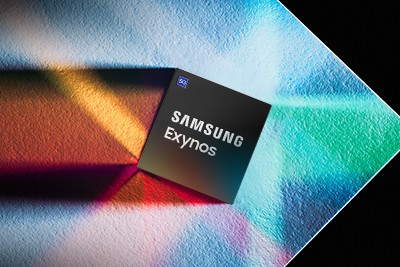Recently, global chip manufacturers, including Intel, Samsung Electronics, SK Hynix, and Micron, have all indicated signs of a chip demand recovery in the second half of the year.
Earlier on Friday, American veteran chip maker Intel reported better-than-expected Q2 earnings and optimistic forecasts. Analysts interpret this as an indication of an improving market demand for key computer components, particularly chip products. This may hint at the start of a long-anticipated rebound in the chip industry.
On Thursday, memory chip titan Samsung Electronics revealed its Q2 revenue and profits, both of which declined less than market expectations. In its earnings forecast, Samsung noted that overall memory chip inventory seemed to have peaked in May. Given the expansion of industry cutbacks, it expects global consumer electronics demand to gradually recover in the second half of the year, leading to improved profitability in the semiconductor business.
SK Hynix, the world's second-largest memory chip company, also reported sales exceeding market expectations. The company underscored that AI will soon ignite a long-awaited rebound in chip demand. SK Hynix anticipates the memory chip market condition will begin improving from the second half of the year, echoing Samsung's prediction.
Memory chip giant Micron Technology also announced better-than-expected earnings and revenue guidance at the end of June. This suggests that the oversupply in the memory chip industry is easing. Micron CEO Sanjay Mehrotra stated the belief that the memory chip industry has passed the sales trough, and as the supply-demand balance gradually restores, profit margins are expected to improve.
It's worth noting that memory chips typically reflect the cycles of the booming and busting chip industry.
Shipments of personal computers and smartphones are showing decreasing drops This year, due to global economic weakness, high inflation, and interest rate hikes, both corporate clients and consumers have reduced spending. All major chip markets - smartphones, personal computers, and data centers - have experienced demand contraction.
This resulted in an unprecedented oversupply in most chip markets. However, data from tech analytics firm Canalys shows that this oversupply situation is starting to ease, mainly due to production cuts.
Canalys data shows a slowdown in the decline of personal computer shipments to 11% in June, compared to a 30% decrease in the previous two quarters.
The smartphone market is also improving. Research firm Counterpoint data reveals that phone shipments dropped 8% in the second quarter of this year, compared to a 14% decline in the first quarter.
Intel CEO Pat Gelsinger stated on Thursday that the server CPU inventory surplus will continue into the second half of this year. Data center chip sales are expected to moderately decline in the third quarter and recover in the fourth.
AI chip domain is a winner as AI server memory demand is surging Since the launch of OpenAI's ChatGPT last year, demand for chips supporting generative AI has grown rapidly, although the sector still makes up a small portion of the total chip demand.
Chip equipment manufacturers like KLA Corp and Lam Research are early winners of the AI boom. Both companies' quarterly revenue predictions this week exceeded Wall Street expectations, driving their stock prices up.
Lam CEO Tim Archer indicated in a conference call that with advanced logic, memory, and storage content, advanced AI servers are more advanced than traditional servers. For every 1% increase in penetration of AI servers and data centers, he expects an additional $1 billion to $1.5 billion in chip equipment investment.
Chip manufacturers are also increasing production of high-end chips used to support AI-related chips.
SK Hynix stated that demand for AI server memory in the second quarter more than doubled compared to the first quarter. The company's average selling price for DRAM chips in the second quarter was higher than the first. DRAM chips store information from applications during system operation.
The company is a leader in the High Bandwidth Memory (HBM) DRAM market used for generating AI. According to TrendForce data, as of 2022, SK Hynix holds a 50% share of the HBM market, followed by Samsung with 40% and Micron with 10%.






